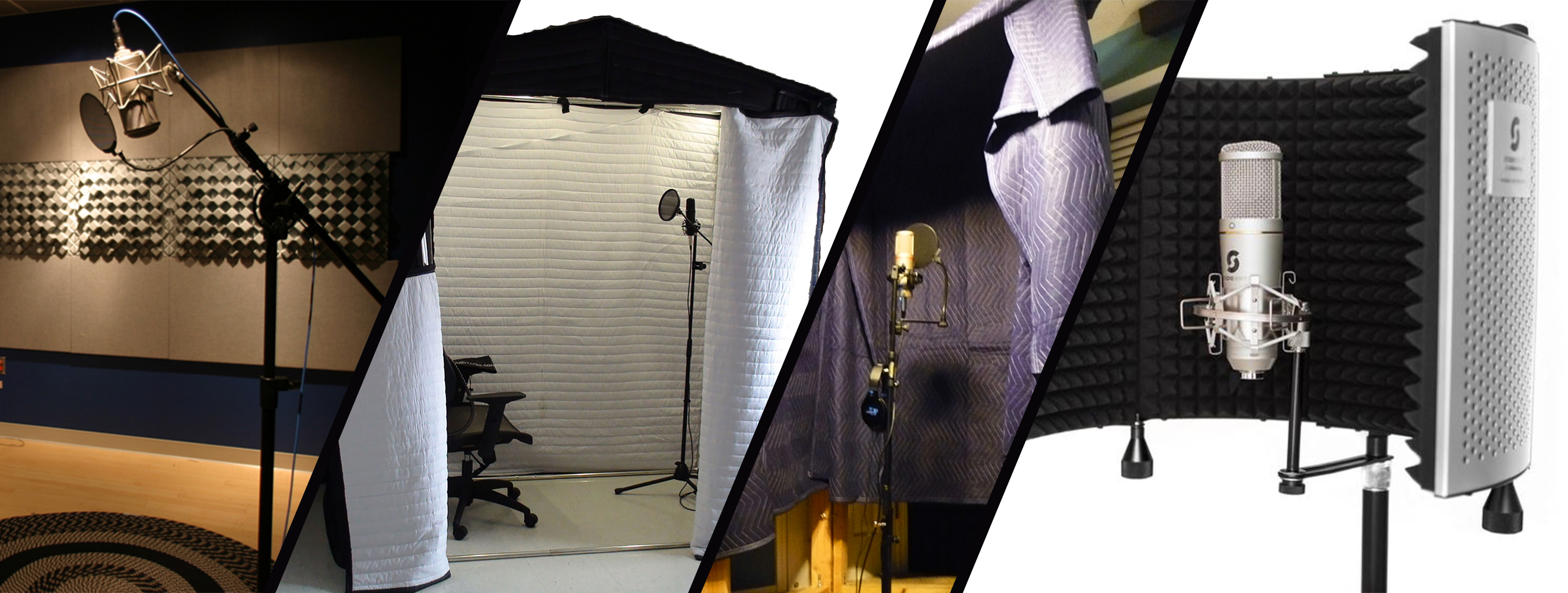How to build a vocal booth at home
Be it a dedicated room, wardrobe, reflection filter or just some blankets, here are our top tips to treating your room to get the best sound possible.
Studio
For the best experience and quality, or maybe just a one off recording, it may be cost efficient and easiest to head to the local studio for recording vocals. Most professional studios will have dedicated rooms, with the best quality microphones and sound proofing equipment. However if you want to regularly record vocals at home for your music or voice overs/podcasts on the cheap, here are some top tips to getting it sounding as good as possible.
What to Avoid
The top thing to keep in mind is you need to reduce reflective surfaces in any way possible. Large areas, tiles and hard walls for example are perfect for creating echos and reverb, which you don’t want on your super clean vocals.
Dedicated DIY Booth
The best way to reduce reverb is to have a small dedicated space, with nothing but a mic, carpeted floor and plenty of acoustic foam. If you have a large enough wardrobe to fit in, this is already near perfect, being a small space with clothes, which do a decent job at dampening and absorbing noise.
There are plenty of DIY projects on YouTube from people that create booths in their garage/basement using wooden crates or PVC piping. If you have the know how, resources and space to build one of these – excellent.
Portable Isolation Booth
Reflection filters can be a great way of reducing unwanted reverb entering the mic. They are made of a felt material designed to diffuse and absorb noise. They range in price depending on what’s included (stand, mic stand, pop filter, microphone, headphones, etc.) Here’s an affordable option worth checking out.
Keep in mind while they no doubt help, they aren’t perfect and shouldn’t be your only source of vocal treatment. Their open ended side and top/bottom remain susceptible to unwanted noise.
Free Solution
Podcastage has a great video on his channel, showing how you can build a temporary booth out of some blankets and clips. This is ideal for those with no money and no dedicated space. The setup can be built with items already at home and removed in minutes.
Be aware of anything making any noise in your recording space. Even a laptop fan, hard drive or near-by street could be picked up by a mic.
For more on building your home studio, visit our article on the top 10 tools for producers.
